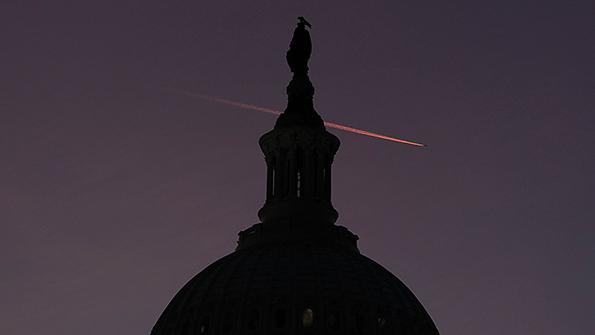Editorial: A Code Of Conduct For Aviation’s Recovery

Desperate times call for bold measures, and the $2.2 trillion coronavirus economic rescue package passed by the U.S. Congress and signed into law by President Donald Trump certainly passes that test. Tucked into the gargantuan measure was $58 billion for airlines and cargo carriers, including $29 billion in grants to keep workers paid for the next six months, even if they are staffing empty flights. Boeing did not get the $60 billion directly that it had sought for aerospace manufacturers, but the aircraft giant and its suppliers still qualify for hefty rescue loans or guarantees.
The secretary general of the United Nations has called COVID-19 the worst crisis the world has seen since World War II, and governments have a duty to ensure that this unprecedented pandemic does not wipe out vital industries. But the torrent of rescue money could have negative side effects, and it is imperative that governments step back when the crisis subsides.
The market distortions of state aid already are apparent in the airline industry, where a lack of coordination among governments—even those within the EU—has tilted the playing field. And what if Boeing receives government backstops that Airbus has said it does not need?
It is increasingly likely that when the pandemic subsides, the aviation industry will be facing a long uphill march to recovery, rather than the quick bounce-back that had been hoped for. As such, we urge the industry’s stakeholders to start looking ahead and taking steps that will position them to recover as quickly as possible. Consider this Code of Conduct:
Take care of your employees. You will need them to excel and work as a team when you recover. Do whatever possible to keep them healthy and well-informed. In the near term, furloughs, wage freezes and hiring freezes may be unavoidable to control costs. But prioritizing shareholders or senior executives over workers would create labor issues that could slow any recovery.
Take care of your customers. You will only recover if they recover, so be flexible in responding to their issues during the crisis. Relationships cemented during hard times will pay off, while fractured relationships could cause long-term damage.
Take care of your suppliers. Aviation manufacturers have spent decades pushing risk down to suppliers while trying to limit their rewards to reduce costs. If your suppliers do not survive or take too long to recover, all those risks will rebound onto you.
Take care of your industrial base. The Pentagon wields an enormous amount of buying power at the taxpayers’ expense. That should be deployed to keep its supply base healthy in the near term, even if it is at the expense of delaying long-term capabilities.
Take care of your business. You need to come back more agile and flexible than ever to adjust to the immediate challenges of a recovery and to tackle future challenges unrelated to the coronavirus, such as climate change.
And what about taking care of shareholders? Consider that in one recent year Boeing returned nearly six times as much money to shareholders through stock buybacks and dividends as it invested in R&D. Or consider that U.S. airlines sent 96% of their free cash flow to shareholders over the last five years. Now that hard times have hit, taxpayers are being asked to step in and foot the bill to save the industry. Shareholders need healthy airlines and healthy manufacturers. They can wait their turn.

Comments
Especially that last sentence.